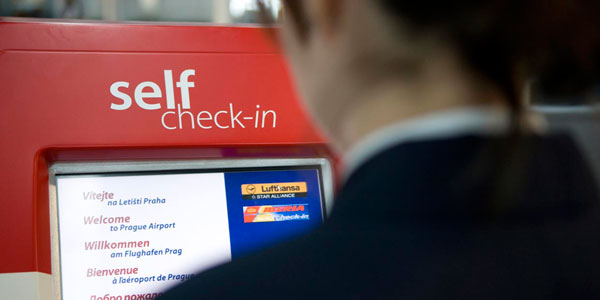
“There is a confusing situation today – checks depend on country. How will these be revolutionised? The answer is evolution of check-in processes”
Sean Farrell, Director, Biometric Center of Excellence, Government and Security Solutions, SITA.
The key is the need to reach a point of positive ID checks. Sean Farrell, Director, Biometric Center of Excellence, Government and Security Solutions, SITA, put it succinctly: “There is a need to check people, not documents.” While there are a number of registered traveller programmes in operation around the world, a set of common standards and a phased approach are required, not simply technology standards. It is a question of whether one government trusts another airline’s enrolment process,” explained Farrell. “If we have an e-Passport, everyone is enrolled. That’s your positive credential and also the token that says you have the right to board. It could be virtual, such as a record on a database.” According to Farrell, many governments will rollout such processes in the coming years. Already, more than 100 countries are using e-Passports.
“There is a confusing situation today – checks depend on country. How will these be revolutionised? The answer is evolution of check-in processes. The trend for check-in is off-airport. In future it will be an automated process behind the scenes. There will be a long transition period.”
There will be an evolution from a boarding document to an e-Token, which could be a bar code on a cell phone, a frequent or registered traveller smartcard, or an e-Passport. Farrell explained that the migration to off-airport check-in is already well underway. “The long-term ambition is to eliminate check-in at the counter for frequent travellers and eventually everyone. But bags still need to be checked and airlines need to know when and where their passengers are at the airport,” he said.
The e-Token could be reusable or single use, and ideally linked to a biometric to enable secure multi-factor identity verification.
Self-service bag drop
Farrell also explained that self-service bag drop is on the rise. e-Tokens and biometric identity checks are the key enablers of this, he said. “In the future, passengers will use home printed and/or permanent electronic bag tags linked to our e-Tokens,” he said. “The e-Token establishes identity and right to fly. The e-Token in combination with a biometric is the key enabler of self-service bag drop.”
Meanwhile, outbound border control will be replaced by electronic clearance processes and self-service boarding will become widespread. According to Farrell, the boarding process can be simplified to e-Token, e-Token plus biometric, or eventually biometric only. “Secure identity checks are key to control authorities and will prevent identity swapping. Boarding is the last line of defence,” he concluded.






